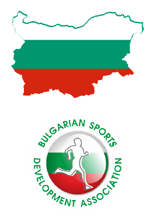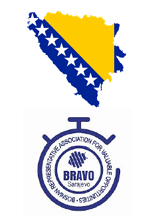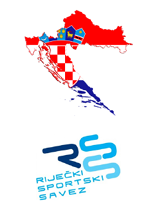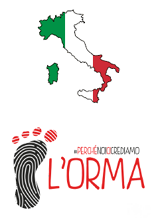
Project news
Sport Diplomacy - SPRINT Magazine
21.07.2021
One magazine with two covers and two parts - for Euro 2020 football and for the Olympic Games in Tokyo. The new issue of SPRINT arrived on July 21, 2021 in a unique format. The 132 pages are divided into two parts - each part with its own cover. There is no first or fourth cover - everyone reads it and turns it as he or she wants, puts it up for sale as he or she sees fit. There is also a free application - 32 pages for "New Urban Sports".
Look for SPRINT mostly in the usual places: Lukoil, Shell, Eco, Rompetrol and Nispetrol petrol stations, Inmedio stores, Fantastico and Kaufland chains, as well as in quality places which sell magazines.
Here is what the new issue 26 of the Bulgarian sports magazine contains, written by 19 authors with special materials for SPRINT:
- Euro 2020 part
- ditorial - No leader, no team
- Fist with 11 fingers
- "No Wembley ticket and quarantined."
- The European adventures of Rumen Paitashev at 8 championships
- The dinosaurs of Euro 2020 and not only ...
- Football paid off for Messi
- If there was no Ludogorets…
- Radoslav Zabavnik: CSKA brought me the best moments in my career
- Thank you for the poverty in "Levski"
- In Memoriam - Georgi Dimitrov
- Ivica Osim: Ivan Vutsov and Ilian Stoyanov left me memories for a lifetime
- The nostalgia of Dario Pas - Anna and football
- Part of the Tokyo 2020 Summer Olympics
- Editorial - The Olympic Sunrise
- Eternal ranking by medal summer games
- The Olympic champions of Bulgaria
- Matriarchy in the Olympic team of Bulgaria -29 against 13 quotas in the gender of women
- The most important thing for the 42nd Bulgarian Olympians in Tokyo
- Andrei Kozhuharov for the years of glory
- The last champion Rumyana Neykova: I hope the athletes cry only out of joy
- How the first champion Nikola Stanchev was welcomed in 1957 in his native village
- Air for normalcy
- Eng. Petar Georgiev: It is great for Rila Athlete to train 300 children every year
- How the Pope received a water polo hat from the Bulgarian brand Delfina
- Sports diplomacy
- Tennis enters schools
- Talents in tennis - Denislava Glushkova, Dinko Dinev, Pyotr Nesterov
- Young tennis players under 14 are second in Europe
- The gentle power of grace
- The world champion in super enduro Teodor Kabakchiev - born on a motorcycle
- Dangerous charm - three of the stars of Star Team for kickboxing and dreams
- The Golden Volleyball Dance in Ruse
- Books
SPORTS DIPLOMACY
We are increasingly finding sport in the diplomatic tools of global "players", including at the political level within the European Union. The United States and China already have established strategies for sports diplomacy. And the EU is taking its first steps, although some Member States are active in this area. The Portuguese Presidency of the Council of the EU (January - July 2021) has chosen the topic of sports diplomacy as its priority.
"Traditional" sports diplomacy is a familiar concept. For many years, countries have used sport to strengthen their foreign policy messages and as a means of bringing countries in strained relations closer together. But these actions are usually sporadic and perhaps somewhat cumbersome, and their results are difficult to determine. In recent years, some countries have tried to act more strategically and purposefully, thus modernizing sports diplomacy.
We are talking about a more regular and strategic use of sport for the purposes of external relations. This approach attracts a wider range of actors beyond the traditional diplomat and politician, including amateur and professional athletes ("sports team diplomats"), sports clubs, governing bodies and civil society actors.
"Sport as diplomacy" also refers directly to situations in which the governing bodies of the state, respectively sports, use the attractiveness of sport as a means of pursuing their own interests on the international stage. For example, by distributing households to large events.
Article 165 of the Treaty on the Functioning of the European Union gives the Union limited competence in the field of sport, but states: "The Union shall encourage cooperation with third countries and with the competent international organizations in the field of sport". To this end, in 2015 the European Commission set up a High Level Group on Sports Diplomacy. Since then, the EU has taken the first strategic steps, including the adoption of the Council Conclusions on Sport Diplomacy (2016). And prioritize sports diplomacy in the EU's sports plans.
The Erasmus + program is the epitome of the EU's "soft power" to engage with third countries (including sport). European Sports Week becomes available to the countries of the Western Balkans and the Eastern Partnership, and in 2018 the call for proposals for exchange and mobility in sport presents a tool for international cooperation initiatives with the Western Balkans, the Eastern Partnership and the countries of Asia, Latin America and Africa.
Erasmus + not only generates the much-needed evidence base for the effectiveness of sports diplomacy, but also finances it. This happened through the project "Sports Diplomacy Academy", coordinated by the Bulgarian Sports Development Association.
"Sports Diplomacy Academy" is a pilot sports project co-financed by the EU, which aims to provide educational mobility of sports professionals as an investment in human capital and contribution to capacity building of sports organizations, with a clear focus on building a network of prepared sports diplomats from Bosnia and Herzegovina, Bulgaria, Italy and Croatia. Within 4 training modules, 80 sports experts have the opportunity to exchange experience and knowledge, as well as to participate in training activities with politicians and experts in the field of sports, diplomacy and international relations from around the world. The initiative has also created a platform for international cooperation in the field of sports, available on the project website (www.eusportdiplomacy.info) and already includes over 300 organizations.
Testimonials








 Project "Sport Diplomacy Academy" /2018-1-EACS-EMS-000114/ is co-funded by the European Union. This webpage and the information / publication / communication reflects the views only of the author, and the
Commission cannot be held responsible for any use which may be made of the information contained therein.
Project "Sport Diplomacy Academy" /2018-1-EACS-EMS-000114/ is co-funded by the European Union. This webpage and the information / publication / communication reflects the views only of the author, and the
Commission cannot be held responsible for any use which may be made of the information contained therein.


